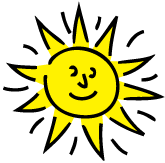Newspaper Articles
The challenges of aging
Even though many depictions in the news media try to convince us that 60 is the new 30, most people don’t experience aging as the exciting and happy time it is made out to be in TV ads or magazines. Getting older comes with its own set of challenges. Physical, cognitive, financial, social and emotional problems can make this phase of life difficult.
Many seniors say it came as a surprise to them — and not a pleasant one — when their body started declining. Adjusting to physical limitations is hard at any age, but it is easier when a person knows the situation is only temporary, such as after a surgery. It is much harder to come to terms with the fact that a person might never be able to get back on the river or the bike because his or her body won’t recover anymore. Many people retire in Moab because they love the outdoors, but physical problems might force them to change all their plans and give up on their dreams.
Problems with focusing, remembering, or processing new information are also issues that impact people as they get older. It is particularly frustrating when people are used to keeping their minds busy and then they find themselves unable to do so.
Unfortunately, financial problems also play a role for many elderly people in our community. It is not unusual for people to work well into their 70s. On the upside, having a job provides opportunities for social interactions and keeps a person busy. However, financial problems and the physical demands of work can be very hard on seniors.
Socially, old age can be a particularly difficult time for people as they experience more losses and find it harder to make new friends. A close relationship to children and grandchildren can be very helpful but is not always possible. Existing relationships might become strained when the older person starts depending more on friends or family members. Losses and physical decline are constant reminders that life won’t go on forever. Thoughts of death and afterlife become more common. It is often hard to talk about these things with friends or relatives, as people shy away from the topic of death.
All these factors — declining health and cognitive abilities, financial problems, changes in relationships, increasing dependence, and thoughts of death — can contribute to the development of depression. According to the Centers for Disease Control and Prevention, up to 13 percent of Americans over the age of 65 suffer from depression, making it the largest mental health problem in that age group.
Depression in older adults is often under-diagnosed. One of the reasons is that some people assume the symptoms of depression, such as confusion, memory problems, withdrawal and the like, are just a normal part of aging. Sleep problems or lack of energy and appetite are some other hallmarks of depression that are also often considered normal for elderly people.
Many of the symptoms might be mistaken for signs of physical illness and therefore not be addressed as symptoms of a mental health problem. Even the person who suffers from depression might think it is just part of getting old or sick to feel this way. Also, people in that generation are often not used to asking for help for mental health problems. Going to counseling or even talking to their physician about their emotional problems is foreign or even anxiety provoking for many.
This is particularly unfortunate because depression is treatable at any age. Elderly people might have a somewhat more difficult time with anti-depressants because they are more sensitive to side effects. Interactions with other medications are also common, but an experienced physician or psychiatrist can find the right anti-depressant to minimize risks. Counseling or talk therapy, particularly in conjunction with medication, has proven to be highly effective for the treatment of depression. Sometimes, just a few sessions can help to explain symptoms, implement coping strategies, and elicit support from friends and family.
Besides therapy and medication, there is much people can do to prevent or alleviate depression as they get older. Social interactions with friends, children, grandchildren and even animals are a wonderful way to avoid loneliness and keep the mind busy. Eating a healthy diet, exercising, and sleeping sufficiently are helpful at any age but particularly important as a person gets older. The hardest part for many seniors is often to adjust their expectations, pace themselves, and find new goals. Being active in the community or church, feeling involved and useful, is an important part of maintaining mental health.
Depression is not inevitable as a person ages. Moab has a lot to offer for seniors and their families. Contact the Moab Free Health Clinic at 435-259-1113, or the Grand Center at 435-259-6623, for more information on counseling and community resources.
- Antje Rath
- July 2014
- Antje Rath
- Clinical Mental Health Counselor
- Moab Regional Hospital
- Specialty Clinics
- 476 W Williams Way
- Moab, UT 84532
- Phone: 435-719-5550
- Fax: 435-719-5551


